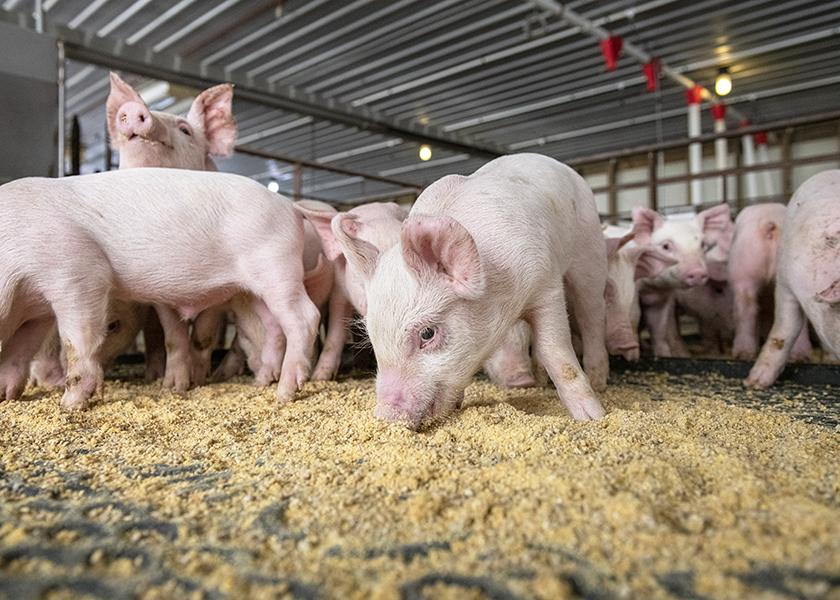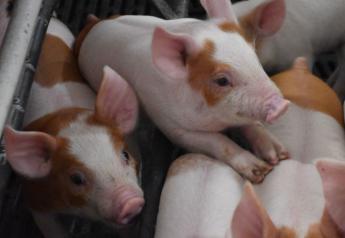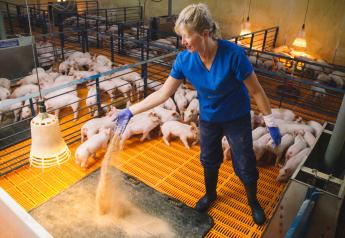British Pig Farmers Reduce Carbon Footprint By Almost 40%

British pig farmers have reduced their carbon footprint by almost 40% over the last 20 years, according to a new study led by the Institute of Global Food Security (IGFS) at Queen’s University Belfast in Northern Ireland.
The study evaluated historic data on livestock systems across England, Scotland and Wales. Due to sparse data on agricultural inputs, a new research methodology called “inverted modeling” allowed researchers to retrospectively estimate inputs, Queen’s University Belfast said in a release.
“The reason this research is so significant is that it shows an area of livestock farming where carbon footprint has been reducing over the past 20 years, almost ‘under the radar’,” Ilias Kyriazakis, a professor at IGFS, said in the release.
The UK government has set a target for carbon-neutral farming by 2050. Farmers are under pressure to reduce their carbon footprint, but evaluating this footprint requires a complex metric involving a large number of indicators including what kind of fuel is used on the farm, how the soil is cultivated, the style of land management and the types of animals and crops being farmed.
The environmental impact contribution per unit of meat from pig systems is relatively low, according to the release, but because pork is the meat type most produced and consumed globally, it is an important factor to consider.
In 2013 it was estimated that the total contribution of British pig systems to greenhouse gas (GHG) emissions was 668 million metric tons CO2 – roughly 10% of GHG emissions produced by livestock systems overall.
This study showed an overall drop in the carbon footprint across the pig farming sector. For indoor and outdoor operations respectively, the study revealed reductions of 37.0% and 35.4% for Global Warming Potential (commonly known as carbon footprint); 21.2% and 16.4% for Terrestrial Acidification Potential; 22.5% and 22.3% for Freshwater Eutrophication Potential; and 15.8% and 16.8% for Agricultural Land Use, the release said.
Researchers noted the role of animal feed accounted for between 75% to 80% of this carbon footprint.
“Changes to feed ingredients, therefore, had the potential to significantly alter the carbon rating of pig farms and the industry as a whole. Specifically, the increasing trend of replacing soya imported from South America (which has a high environmental footprint associated with deforestation) with home-grown crops such as rapeseed and sunflower meal to feed pigs was found to have a significant mitigating effect on environmental outputs,” the release said.
Advances in animal nutrition and feedstuff availability were also noted to have had a beneficial effect, particularly the increased availability of synthetic amino acids and enzymes. When added to domestic feedstuffs like rapeseed, the study showed these ingredients increased nutrient availability and improved feed balance, resulting in reduced nutrient excretion in manure whilst boosting animal productivity by as much as 30%.
The study also reported that such supplements in animal feed helped lower levels of phosphorous in run-off from pig manure by more than 20%, reducing the contribution of pig systems to freshwater pollution.
Other contributors to the reduced environmental impact included changes in animal performance due to breeding for leaner and faster growing pigs, increases in number of piglets born per sow per litter and reductions in overall mortality.
“We hear a lot these days about the need for farmers to reduce their carbon outputs for the sake of the environment, especially as it applies to beef and dairy cattle farming. There is much more attention focused on ruminant food systems as they produce higher GHG emissions,” Kyriazakis said. “But I believe there are important lessons to be learned from this study – not only for better environmental management as it relates to pig farming, but potentially for all livestock systems.”
Some of the improvements identified in this study could potentially be applied to other animal systems, Kyriazakis noted, which would ultimately help move our collective agriculture systems towards a carbon-neutral model.
The study, led by Kyriazakis, in collaboration with other UK institutions, used publicly available Agriculture and Horticulture Development Board (AHDB) data from Great Britain from 2000 to 2020. Kyriazakis said this is the first time inverted modelling has been used to investigate the environmental impact of any livestock system, marking a departure for research into the whole area of farming and carbon, the release said. This research was published in the Agricultural Systems journal following peer review.
More from Farm Journal's PORK:
The Carbon-Neutral Pig and Chicken: The Pivotal Moment is Now
Is 2021 the Year to Take a Closer Look at Net Energy?
3 Ways to Lessen the Impact of High Feed Prices in Pork Production
Don’t Pay For Energy Lost During Digestion, Swine Nutritionists Say







